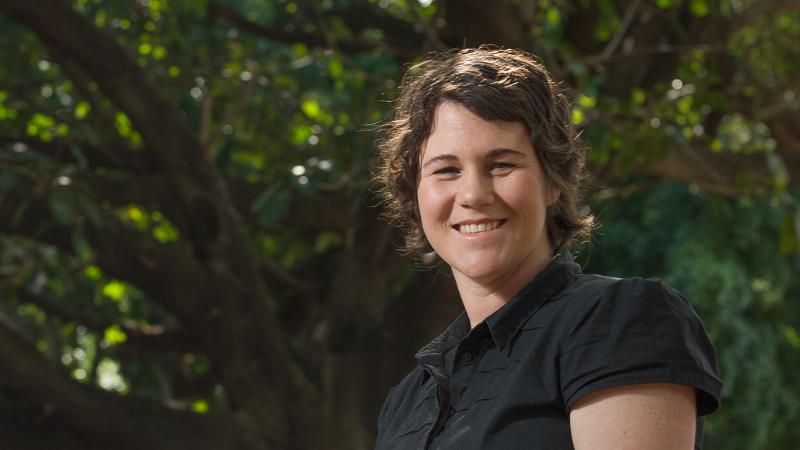
Technologies and products that promise to improve sun protection will be put to the test at a new research centre being established in Brisbane by QUT in partnership with clinical trial company Q-Pharm.
Funded by an Advance Queensland Fellowship awarded to QUT’s Dr Elke Hacker, the Centre for Testing New Technology will analyse websites, apps, devices and wearables used by people in the prevention, detection and management of cancer to ensure they are safe and live up to their promises.
- QUT is partnering with Q-Pharm to establish a new reserach testing centre
- Projects earmarked for testing include apps, websites, wearable devices and lotions
- Centre will test sun "truth" behind sun protection promises
Dr Hacker, who will lead the research centre, said technology was playing an increasing role in the prevention of sunburn and skin cancer with personal UV detectors, sunscreen indicator patches and software apps encouraging people to take responsibility for monitoring their own health.
“It is vital that we make sure these devices and health apps are regulated and tested and there is evidence to substantiate the health claims being made,” Dr Hacker said.
Dr Hacker said ultraviolet radiation (UVR) exposure from sunlight was the main risk factor for skin cancer, and sunburn reflected a damaging dose of sunlight.
“Despite sun smart campaigns, sunburn rates continue to be high, especially among young people, with a study showing 72 per cent of Queenslanders aged 18-24 admit to getting sunburnt,” she said.
“It is pleasing that new technology is encouraging people to take responsibility for their actions in avoiding over-exposure to UVR but the value of these devices, apps and products needs to be tested to ensure that they do improve sun protection habits, sun exposure behaviour and reduce sunburn.”
Dr Hacker said to kick-start testing at the new centre, personalised wearable stickers would be put under the microscope.
“These UV Spots (stickers) are sunscreen indicators that aim to warn people when the effect of sunscreen wears off and needs to be reapplied,” she said.
“Our testing will make sure these stickers work accurately in and out of water, to ensure they can be safely used by people when swimming.”
Other projects earmarked for testing include apps that monitor UV exposure, novel therapeutic lotions that promise skin repair and wearable devices.
“As the evidence-based products entre the market they will assist the Queensland community to improve health outcomes,” she said.
Dr Hacker said early phase clinical trial company Q-Pharm would provide the state-of-the-art facilities to ensure trials were undertaken in accordance with national and international standards and guidelines.
“Q-Pharm’s strength is in its highly-qualified clinical trial team, whose leaders have a wealth of experience in testing the safety of products,” Dr Hacker said.
Q-Pharm CEO Tufail Syed said Q-Pharm was delighted to participate in testing new technologies and build its capabilities from therapeutic goods to emerging technologies.
“We hope to offer safety testing for products that have contact with the skin, such as lotions or wearable devices, by the end of the year,” Dr Syed said.
The Centre for Testing New Technology will also work with patient advocacy group Melanoma Patients Australia and Queensland Health – Preventative Health Branch, to ensure the findings and results translate into community health outcomes.
Dr Hacker is a member of QUT’s Institute of Health and Biomedical Innovation.
Media contacts:
Sandra Hutchinson, QUT Media, 07 3138 9449 (Tue/Wed) or media@qut.edu.au
After hours: Rose Trapnell, 0407 585 901


